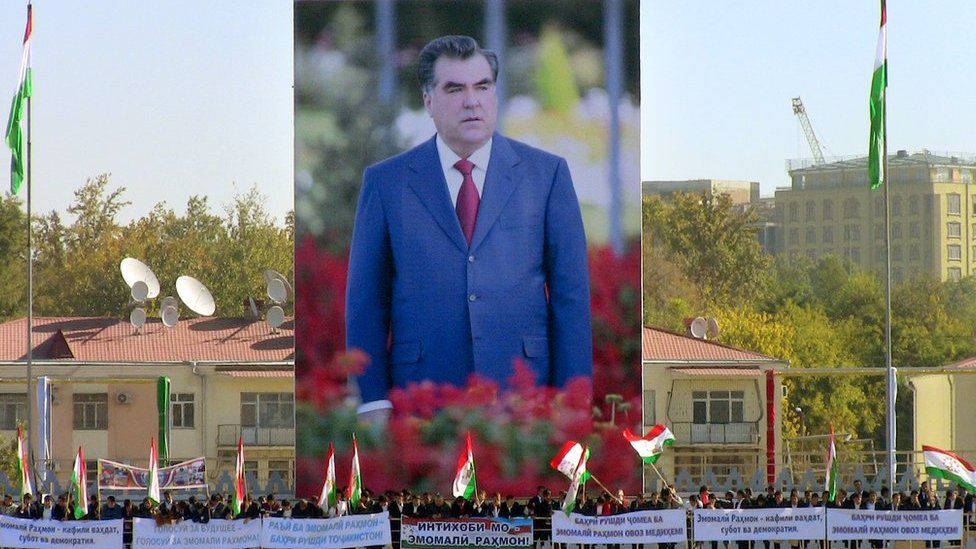Tajikistan clashes leave 22 dead
- Published

Gun battles in and around Tajikistan's capital Dushanbe have killed at least 22 people.
The interior ministry said nine policemen were killed in gun attacks in the town of Vahdat just outside Dushanbe, and at a central interior ministry building.
Officials blamed sacked Deputy Defence Minister Abdukhalim Nazarzoda, saying he was leading a "terrorist group".
They said 13 of the attackers were killed and 32 detained.
The US embassy said it had closed and warned that the clashes "may be precursors to other acts of violence".
In a statement given to a state-owned news agency, the interior ministry said that early on Friday morning an "organised criminal group" had launched armed attacks on Vahdat's internal affairs department and on the central government building in Dushanbe.
"As a result, a large amount of weapons and ammunition were seized and taken away by that terrorist group," the statement said.
The statement added that "a group of terrorists" led by Gen Nazarzoda had fled towards the Romit Gorge area and that authorities were searching for him and his accomplices.
A later statement said Gen Nazarzoda was hiding in the Romit Gorge with "seven or eight followers".
The unrest is rare for Tajikistan and comes after recent renewed controversy over the role of Islam in public life in the country, which is majority Muslim but has had a secular political order since independence.
In recent years economic hardship has been seen as contributing to a renewed interest in Islam - including more radical forms - among young Tajiks.
Last week the justice ministry imposed a ban on the activities of the Islamic Revival Party, the only legal faith-based party in ex-Soviet Central Asia.
Gen Nazarzoda is a former member of the United Tajik Opposition (UTO), which fought government forces during the civil war in the 1990s and joined the cabinet after a peace agreement was signed in 1997.
Correspondents say the latest attacks seem to suggest a growing conflict between the government of President Emomali Rakhmon and former UTO warlords.
Mr Rakhmon has been in power for two decades and was re-elected in 2013 with 83.6% of the vote.
International observers said the election was quiet and peaceful but "without a real choice".
- Published5 September 2015
- Published1 September 2015